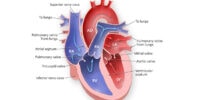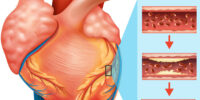What Is The Digestive System? Nutrient Absorption And Elimination

The digestive system is a complex network of organs and tissues that work together to break down food into nutrients that the body needs for energy, growth, and repair. These nutrients include carbohydrates, proteins, fats, vitamins, and minerals. The digestive system also plays a critical role in eliminating waste products from the body.
The process of digestion involves both mechanical and chemical processes that begin in the mouth and continue through the esophagus, stomach, small intestine, and large intestine. Enzymes, which are specialized proteins that speed up chemical reactions, play a key role in breaking down food into its component parts so that it can be absorbed by the body.
Nutrients are then transported to the liver, where they are processed and distributed to the rest of the body through the bloodstream. The waste products that are left over are eliminated from the body through the process of defecation.
Understanding how the digestive system works can help individuals make informed choices about their diet and lifestyle to maintain digestive health.
Key Takeaways
- The digestive system breaks down food into nutrients for energy, growth, and repair through mechanical and chemical processes, with enzymes playing a crucial role in breaking down food.
- The organs of the digestive system include the mouth, esophagus, stomach, small and large intestines, liver, pancreas, and rectum.
- Nutrient absorption primarily occurs in the small intestine through enzymatic breakdown of larger molecules, with nutrients then transported to the liver for processing and distribution through the bloodstream.
- Adequate hydration, regular exercise, and a balanced diet rich in fiber can help maintain digestive health, while common digestive issues such as constipation, diarrhea, and acid reflux can be caused by various factors and should be addressed by a healthcare provider.
Overview of the Digestive System
The digestive system is a complex network of organs and tissues that work together to break down food into smaller, absorbable nutrients and eliminate waste products from the body. This system includes the mouth, esophagus, stomach, small and large intestines, liver, pancreas, and rectum. Each of these organs plays a vital role in the process of digestion, absorption, and elimination.
The process of digestion begins in the mouth, where food is mechanically broken down by teeth and chemically broken down by enzymes present in saliva. The food then travels down the esophagus and into the stomach, where it is further broken down by stomach acids and enzymes.
From there, the food moves into the small intestine, where most of the nutrient absorption occurs. The large intestine then absorbs water and electrolytes, while also forming and eliminating waste products through the rectum.
Overall, the digestive system is a crucial component of the body’s ability to maintain its energy balance and health.
Mechanical and Chemical Processes of Digestion
Mechanical and chemical processes work together to break down food into smaller components that can be utilized by the body.
Mechanical digestion begins in the mouth, where teeth grind and crush food into smaller pieces. The tongue and saliva also play a role in mechanical digestion by mixing and moistening the food, making it easier to swallow.
Once the food reaches the stomach, it undergoes further mechanical digestion through the churning and mixing of the stomach muscles. This process breaks down the food into even smaller pieces, creating a semi-liquid mixture called chyme.
Chemical digestion, on the other hand, involves the use of enzymes and other chemicals to break down food into its basic components. Enzymes are proteins that speed up chemical reactions in the body.
In the digestive system, enzymes break down carbohydrates, proteins, and fats into their simplest forms, such as glucose, amino acids, and fatty acids. These nutrients can then be absorbed into the bloodstream and transported to the cells of the body.
The process of digestion is a complex and intricate one, involving both mechanical and chemical processes that work together to ensure that the body receives the nutrients it needs to function properly.
The Role of Enzymes in Nutrient Absorption
Enzymatic breakdown of food molecules is crucial for their subsequent utilization by the body. Enzymes are biological catalysts that are responsible for breaking down large molecules into smaller ones that can be absorbed and utilized by the body. Enzymes are produced by various organs in the digestive system, such as the salivary glands, pancreas, and small intestine. Each enzyme is specific to a particular type of molecule, and they work together in a coordinated manner to break down the various components of food.
The role of enzymes in nutrient absorption extends beyond just breaking down food molecules. Enzymes also facilitate the absorption of nutrients by the small intestine. The small intestine is the primary site for nutrient absorption, and it has a specialized lining that allows for efficient absorption. Enzymes play a key role in this process by breaking down larger molecules into smaller ones that can be transported across the intestinal lining and into the bloodstream.
Without enzymes, nutrient absorption would be inefficient and incomplete, leading to malnutrition and other health complications.
The Passage of Nutrients through the Digestive Tract
As food is broken down and mixed with digestive juices, it travels through a winding tube-like structure lined with muscular tissue, where it is further broken down and eventually absorbed into the body. This process is known as the passage of nutrients through the digestive tract.
The digestive tract is a long tube that starts with the mouth and ends with the anus. It includes several organs, such as the esophagus, stomach, small intestine, and large intestine.
The passage of nutrients through the digestive tract is a complex process that involves several stages. Here are the three main stages of the process:
1) Ingestion: This is the process of taking food into the mouth and breaking it down into smaller pieces.
2) Digestion: Once the food is in the mouth, it is mixed with saliva, which contains enzymes that help break down the food. The food then travels through the esophagus into the stomach, where it is mixed with stomach acid and digestive enzymes.
3) Absorption: The nutrients from the food are absorbed into the bloodstream through the walls of the small intestine. The remaining waste products are then moved into the large intestine, where they are eliminated from the body.
The Role of the Liver in Nutrient Processing
The liver, a large and vital organ located in the upper right side of the abdomen, plays a crucial role in processing nutrients after they have been absorbed into the bloodstream. As blood from the digestive tract enters the liver, it is filtered through the hepatic portal vein, which carries nutrients and toxins from the intestines to the liver for processing. The liver then processes these nutrients into forms that can be utilized by the body, while also detoxifying harmful substances. In addition to these functions, the liver also produces bile, a fluid that aids in the digestion of fats by breaking them down into smaller particles for easier absorption.
To understand the role of the liver in nutrient processing, it is helpful to examine the different types of nutrients and their respective pathways through the liver. Carbohydrates, for example, are broken down in the small intestine into glucose, which is then absorbed into the bloodstream and transported to the liver. Here, glucose is converted into glycogen and stored for later use, or released into the bloodstream as needed to maintain stable blood sugar levels. Similarly, proteins are broken down into amino acids, which are processed by the liver and either used to build new proteins or converted into glucose or fat for energy storage. Fats, on the other hand, are processed by the liver into smaller particles called lipoproteins, which are then transported to other parts of the body for energy production or storage. Overall, the liver plays a critical role in the processing and utilization of nutrients, ensuring that the body has a constant supply of energy and building blocks for growth and repair.
Distribution of Nutrients throughout the Body
One essential aspect of maintaining a healthy body is the appropriate distribution of nutrients throughout various organs and tissues. After the liver processes and modifies nutrients obtained from food, they are then transported through the bloodstream to where they are needed.
The blood vessels deliver nutrients to cells and tissues, where they are used for energy production, growth, and repair. The distribution of nutrients is regulated by hormones and enzymes that control the release and uptake of nutrients by cells and tissues.
For example, insulin is a hormone that regulates the uptake and storage of glucose, the body’s primary source of energy, by muscle and fat cells. Similarly, other hormones and enzymes regulate the uptake and distribution of amino acids, fatty acids, vitamins, and minerals by various organs and tissues.
Overall, the distribution of nutrients is a complex and tightly regulated process that ensures the proper functioning of the body’s systems and organs.
The Process of Defecation and Waste Elimination
Efficient disposal of waste is crucial for maintaining the health and hygiene of the body. The process of defecation and waste elimination is an important aspect of the digestive system. Once food has been broken down and nutrients have been absorbed, the remaining waste material must be eliminated from the body. This process is carried out by the large intestine, also known as the colon.
During defecation, the muscles in the rectum contract, pushing the waste material through the anal canal and out of the body. The process of defecation is aided by the presence of fecal matter in the rectum, which triggers the defecation reflex. The defecation reflex is the body’s natural response to the presence of fecal matter in the rectum and it involves the relaxation of the internal anal sphincter and the contraction of the external anal sphincter.
To ensure efficient and effective waste elimination, it is important to maintain a healthy diet and lifestyle. Adequate hydration, regular exercise, and a balanced diet rich in fiber can help promote regular bowel movements and prevent constipation.
Additionally, practicing good hygiene habits such as washing hands thoroughly after using the bathroom can help prevent the spread of harmful bacteria and viruses.
Overall, the process of waste elimination is an essential aspect of the digestive system and plays a crucial role in maintaining overall health and wellness.
Common Digestive Issues and How to Maintain Digestive Health
Maintaining a diet that is high in fiber and low in processed foods can help prevent common digestive issues and promote overall digestive health.
Some of the most common digestive issues are constipation, diarrhea, and acid reflux. Constipation occurs when stool moves too slowly through the digestive tract, causing it to become hard and difficult to pass. This can be caused by a lack of fiber in the diet, dehydration, and a sedentary lifestyle.
On the other hand, diarrhea occurs when stool moves too quickly through the digestive tract, resulting in loose and watery stools. This can be caused by infections, food intolerances, and certain medications.
Acid reflux, also known as heartburn, occurs when stomach acid flows back into the esophagus, causing a burning sensation in the chest. This can be caused by certain foods, obesity, and pregnancy.
To maintain digestive health, it is important to consume a balanced diet that is rich in fiber and includes a variety of fruits, vegetables, whole grains, and lean proteins. Additionally, staying hydrated by drinking plenty of water and avoiding excessive alcohol and caffeine consumption can help prevent digestive issues.
Regular exercise can also help improve digestive function by promoting regular bowel movements and reducing stress. If you are experiencing persistent digestive issues, it is important to speak with a healthcare provider to determine the underlying cause and develop an appropriate treatment plan.
Conclusion
In conclusion, the digestive system is a complex process that involves mechanical and chemical processes to break down food into nutrients that can be absorbed and distributed throughout the body.
Enzymes play a critical role in nutrient absorption, and the liver is responsible for processing and distributing these nutrients.
The process of waste elimination is equally important, and any disruption in this process can lead to digestive issues.
To maintain digestive health, it is crucial to practice good dietary habits, such as eating a balanced diet, staying hydrated, and avoiding processed foods.
Exercise and stress management can also help promote healthy digestion.
If digestive issues persist, it is essential to seek medical attention, as they could be a sign of an underlying condition that requires treatment.
Overall, the digestive system plays a vital role in maintaining overall health, and it is essential to take care of it to ensure optimal functioning.









